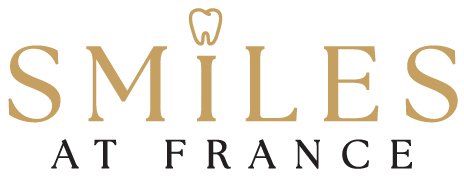Developing a dry mouth can have a devastating effect on the health and comfort of your mouth. Active daily preventive tactics can alleviate many of the unfortunate consequences of dry mouth. Dry mouth is not a side effect of simple aging; it is usually related to something else. For many it is a side effect of many of the prescription medications we take or a consequence of another disease state.
People with dry mouth are at a very high risk of developing rapid and aggressive tooth decay. Some of this is due to having less saliva; the other part is what we mistakenly do to compensate for less saliva.
Treating dry mouth
A person suffering from dry mouth can benefit greatly by spending additional time brushing and flossing. Prescription strength fluoride tooth pastes can give additional protection from decay. Your dental team can apply protective fluoride varnishes to further combat decay. Many benefit from having their teeth cleaned 3-4 times a year to boost their preventive efforts.
A healthy salvia flow helps neutralize and buffers the acids that contribute to tooth decay. Having less saliva, especially at nighttime increases our decay experience by allowing these acids to concentrate and damage our teeth. Saliva also acts as a lubricant, without it nighttime grinding of our teeth together produces more friction and greater damage to our teeth. It may also increase muscle, joint or headache pain because of the increased friction to jaw movement.
When we place mints or cough drops in our mouth that are acidic (lemon flavored) in order to enhance wetness, they increase the acid drive to tooth decay. Even many of the sugar free sweeteners can eventually be consumed by the plaque in our mouth and cause tooth decay. Only the sweetener xyletol does not do this. Look for Xyletol as the sweetener in mints and chewing gums.
People with dry mouth are more prone to gum and periodontal disease, along with bad breath. They often complain that their food taste is off and it takes longer to chew, swallowing is difficult. Some have a burning mouth sensation.
Water is your best source for hydration. Avoid any sodas, pops, juices, energy drinks, and caffeine. Sipping water all day long helps and does not harm. The other drinks have acid which contributes to decay and tooth erosion or they further dry your mouth (caffeine).
General tactics for dealing with dry mouth
- Use Sodium Lauryl Sulfate (SLS ) free toothpastes and mouth rinses to reduce chance of mouth sores (canker sores)
- Increase water: atomizer spray, Water Pic, moist food
- Humidify bedroom, have water at bedside
- Suck on ice chips–do not chew!
- Eat moist foods, smaller bits, chewing longer and thoroughly to increase saliva
- OraMoist discs three times a day to stimulate saliva
- Chew gum with xylitol
- Avoid acidic juices
- Avoid drinks that dry the mouth: caffeine (tea, coffee), alcohol.
- Use alcohol free mouth rinses
- Use Biotene products; Orajel Dry Mouth Moisturizing Gel at night gives some relief
- Have your teeth cleaned more often by your dental team
- Use a prescription strength fluoride containing tooth paste and have fluoride varnishes placed at your preventive dental visits
